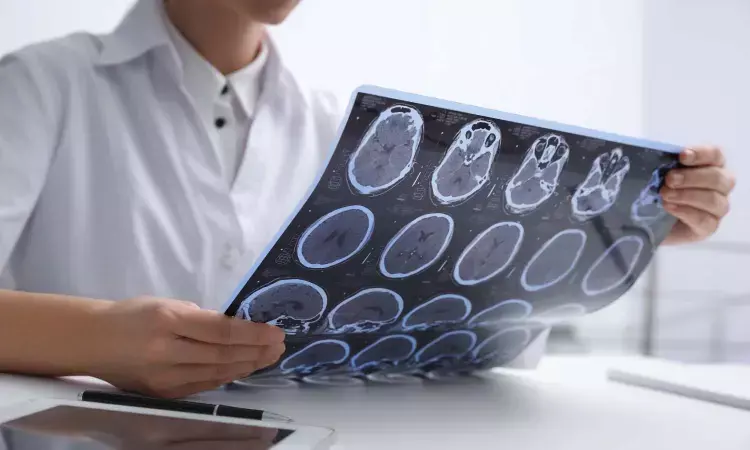- Home
- Medical news & Guidelines
- Anesthesiology
- Cardiology and CTVS
- Critical Care
- Dentistry
- Dermatology
- Diabetes and Endocrinology
- ENT
- Gastroenterology
- Medicine
- Nephrology
- Neurology
- Obstretics-Gynaecology
- Oncology
- Ophthalmology
- Orthopaedics
- Pediatrics-Neonatology
- Psychiatry
- Pulmonology
- Radiology
- Surgery
- Urology
- Laboratory Medicine
- Diet
- Nursing
- Paramedical
- Physiotherapy
- Health news
- Fact Check
- Bone Health Fact Check
- Brain Health Fact Check
- Cancer Related Fact Check
- Child Care Fact Check
- Dental and oral health fact check
- Diabetes and metabolic health fact check
- Diet and Nutrition Fact Check
- Eye and ENT Care Fact Check
- Fitness fact check
- Gut health fact check
- Heart health fact check
- Kidney health fact check
- Medical education fact check
- Men's health fact check
- Respiratory fact check
- Skin and hair care fact check
- Vaccine and Immunization fact check
- Women's health fact check
- AYUSH
- State News
- Andaman and Nicobar Islands
- Andhra Pradesh
- Arunachal Pradesh
- Assam
- Bihar
- Chandigarh
- Chattisgarh
- Dadra and Nagar Haveli
- Daman and Diu
- Delhi
- Goa
- Gujarat
- Haryana
- Himachal Pradesh
- Jammu & Kashmir
- Jharkhand
- Karnataka
- Kerala
- Ladakh
- Lakshadweep
- Madhya Pradesh
- Maharashtra
- Manipur
- Meghalaya
- Mizoram
- Nagaland
- Odisha
- Puducherry
- Punjab
- Rajasthan
- Sikkim
- Tamil Nadu
- Telangana
- Tripura
- Uttar Pradesh
- Uttrakhand
- West Bengal
- Medical Education
- Industry
Teriflunomide may delay first clinical demyelinating event among patients with radiological findings of multiple sclerosis

Radiologically isolated syndrome is a condition which is diagnosed in people who do not have MS symptoms but who have abnormalities in the brain or spinal cord called lesions, similar to those seen in MS.
Researchers have found in a new research that Teriflunomide is associated with a reduction in the first clinical demyelinating event compared with placebo among adults with radiologically isolated syndrome (RIS).
Further teriflunomide may delay first symptoms for people whose magnetic resonance imaging (MRI) scans show signs of multiple sclerosis (MS) even though they do not yet have symptoms of the disease.
The preliminary study was presented at the American Academy of Neurology’s 75th Annual Meeting being held in person in Boston and live online from April 22-27, 2023.
MS is a disease in which the body’s immune system attacks myelin, the fatty white substance that insulates and protects the nerves. Symptoms of MS may include fatigue, numbness, tingling or difficulty walking.
“With more and more people having brain scans for various reasons, such as headache or head trauma, more of these cases are being discovered, and many of these people go on to develop MS,” said study author Christine Lebrun Frenay, MD, of the University Hospital of Nice in France and a Fellow of the American Academy of Neurology. “The sooner a person can be treated for MS, the greater the chances of delaying damage to the myelin, which decreases the risk of permanent neurologic impairment and debilitating symptoms.”
The study involved 89 people with radiologically isolated syndrome. Half of the people were given 14 milligrams (mg) of teriflunomide daily and the other half were given a placebo. They were followed for up to two years.
During the study, eight people who took the drug developed MS symptoms, compared to 20 who took the placebo.
After adjusting for other factors that could affect the risk of developing symptoms, researchers found that people taking teriflunomide had a 72% lower risk of experiencing first symptoms than those taking the placebo.
“Our findings suggest that early intervention with teriflunomide may be beneficial to those diagnosed with radiologically isolated syndrome, the presymptomatic phase of MS,” Lebrun Frenay said. “However, more research is needed in larger groups of people to confirm our findings. Additionally, it is important that medical professionals are cautious when using MRI expertise to diagnose this condition, selecting only patients at risk of developing MS and not increasing MRI misdiagnoses.”
Dr Kamal Kant Kohli-MBBS, DTCD- a chest specialist with more than 30 years of practice and a flair for writing clinical articles, Dr Kamal Kant Kohli joined Medical Dialogues as a Chief Editor of Medical News. Besides writing articles, as an editor, he proofreads and verifies all the medical content published on Medical Dialogues including those coming from journals, studies,medical conferences,guidelines etc. Email: drkohli@medicaldialogues.in. Contact no. 011-43720751


